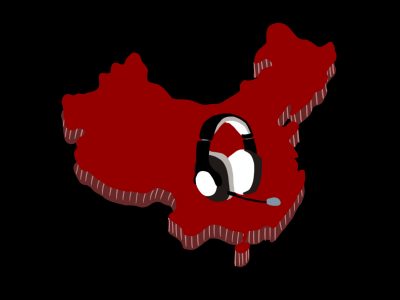Last week, a law took effect in China that heavily restricts minors’ ability to play video games. Chinese gamers under the age of 18 had already been limited to 90 minutes of playtime on weekdays and 3 hours on weekends since 2019, but the country’s new policy clamps down tighter. Now, minors are prohibited from gaming on weekdays entirely, and are only allowed one hour of play on weekends.
Shockingly, I am not a fan of this law. But as much as I wish such restrictions weren’t created, I couldn’t help but notice an overwhelming bias in the way and extent to which this new regulation was portrayed in English-language news media.

This bias quickly becomes apparent in comparison to reporting on similar legislation passed in South Korea in 2011. Nicknamed the “shutdown” or “Cinderella” law, South Korea prevented children under the age of 16 from gaming between midnight and 6 AM — the country announced this week that the shutdown law would be retired by the end of this year.
The South Korean shutdown law is noticeably less harsh than the one recently passed in China, but there is a clear discrepancy between Western reporting on the two laws — one that cannot only be attributed to their severity.
For one thing, China’s video game restrictions made more appearances in major news outlets than South Korean gaming laws ever did. China’s ban made major headlines, with a Google search turning up articles in CNN, Reuters, The New York Times and prestigious financial publications like Bloomberg and Fortune. A similar search about South Korea’s law turns up a CNN piece, but most of the articles are from small publications specializing in Korean or technology news.
The tone with which the two issues were treated in the articles also differs. Coverage of China’s law relishes in vocabulary like “crackdown” and “strengthen[ing] control.” The CNN Business article on the legislation characterizes it as part of a “major clampdown on private enterprise,” even though it notes two sentences later that it will have a “minimal” effect on the bottom line of tech giants Tencent and NetEase.
News outlets also appealed to Chinese despotism by quoting a particularly inflammatory Xinhua article that called video games “spiritual opium.” This article was taken down and re-uploaded with the reference to “opium” removed, but of all the articles I could find only CNBC explicitly noted this edit — CNN Business, Reuters and Fortune allowed less nuance.
Articles from about ten years ago during the rollout of South Korean gaming laws are much more sympathetic. NBC News’s coverage from early 2012 writes “gaming’s ills” in the headline, while CNN speaks solemnly about the “serious consequences” of addiction. Newsweek’s coverage also contextualized Korean laws within sensational gaming-related horror stories from the country, such as deaths due to days-long play sessions without breaks for food and rest. Plenty of such stories have come from China as well, but English-language coverage of Chinese gaming bans seems not to mention them.
To me, there is no mystery about where these discrepancies come from — American political figures and foreign policy have shown a consistent pattern of anti-Chinese sentiment for several years now.
The global pandemic has only worsened this existing trend, with thousands of instances of anti-Asian harassment occurring since the pandemic began. Neither Trump nor Biden have improved US foreign policy on that front either, as the two rushed to call themselves “tough on China.”
Much of this international fear, consciously or subconsciously, seems to leak into mainstream journalism. The online United States Sinophobia Tracker has cataloged many instances of paranoid rhetoric in mainstream media, and its list is far from exhaustive. Is it really a far stretch to suggest that reporting on the new video game legislation may play into such paranoia?
I don’t approve of many of the Chinese government’s actions, unfortunate gaming restrictions or not. But that doesn’t mean I approve of unfair and sinophobic portrayals of the country either.



















































































































